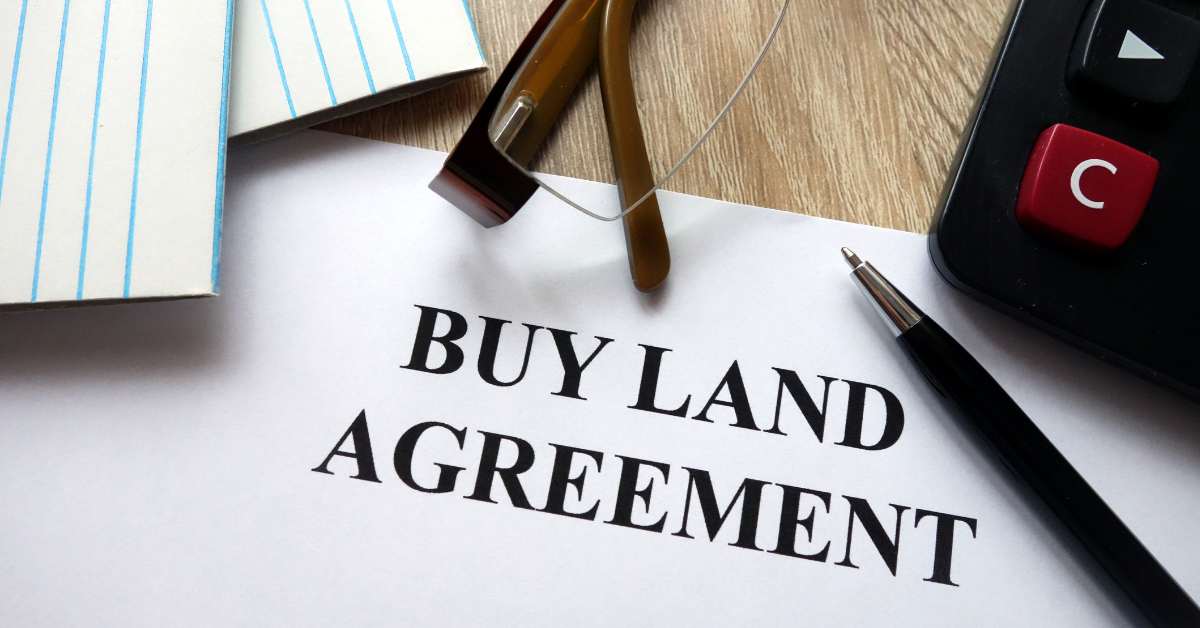Language:
Buying Land Under an LLC: Maximize Asset Protection

Buying land can be exciting but complex, and using a limited liability company (LLC) in the process can protect you from personal liability. However, setting up an LLC by yourself may not be enough to protect your assets. Following the right process includes setting up the appropriate LLC structure and transferring ownership properly to reduce risks and unlock advantages.
Find out how buying land through an LLC helps you when investing in real estate.
Understanding How Buying Land Under an LLC Is Possible
Having a real estate LLC is becoming more commonplace for business owners and investors today. LLCs involved in real estate represent the highest number of U.S. domestic LLCs, based on IRS records.
An LLC is an independent business entity with the right to own property. Using an LLC merges the liability protection that corporations receive with the flexibility of a partnership. Investors can pool together money to purchase assets through an LLC while trying to maximize asset protection.
Advantages of Buying Land Under an LLC
When you set up an LLC, your personal property is separate from the assets owned by your business entity. Through this setup, you can unlock some of the following benefits.
1. Limited Liability Protection
A limited liability company generally shields the personal property of the LLC members. Creditors typically cannot pursue your personal assets for claims on the land or as a result of lawsuits. This segregation of assets limits LLC liabilities.
2. Tax Benefits
Using an LLC allows you to deduct related expenses, resulting in a lower taxable income. You can elect the method of taxation, where you have the LLC being taxed as a corporation or as a “disregarded entity.” As a disregarded entity, LLCs become pass-through entities that prevent double taxation. All gains and losses flow from the LLC to your personal income tax return.
Corporate taxation, for instance, may result in double taxation since you have to pay two taxes – corporate income tax and personal income tax. Consult a professional to determine the best tax treatment.
3. Flexibility in Ownership and Management
Regulatory requirements for LLCs are less strict compared to corporations, without required annual meetings and boards of directors. With this flexible business structure, you can also add members with varying shares of ownership. While the decision to add more people to your LLC needs careful consideration, your LLC can add more members as long as you comply with tax filings and legal requirements.
The operating agreement can specify a clear plan for ownership changes upon the death of a member and provide business continuity even if you need to change membership.
Steps to Buying Land Under an LLC
Using an LLC to buy land requires research, and consulting a professional to help you through the process can save time.
Here are the general steps you need to follow when buying a property through an LLC.
1. Select the Right Type of LLC
When buying land, set up your LLC first. Start with choosing the right LLC for the purpose you have in mind. You can set up a single-member LLC with one owner or a multiple-member LLC for two or more members, and choose a member or hire a professional manager to manage the LLC. The different types of LLCs include:
- Domestic LLC for creating a business entity in your home state.
- Foreign LLC for creating a business entity in another state.
- Series LLC for creating a structure where the parent LLC controls smaller LLCs.
- Low-Profit LLC, also known as L3C company, combines for-profit ventures with a philanthropic cause.
- Anonymous LLC allows you to form the entity without divulging the information of the owner, manager, or members.
- Restricted LLC is an LLC you can open only in Nevada to reduce the tax consequences of transferring assets to family members.
- Nonprofit LLC that serves a purpose and doesn’t focus on making money.
- Professional LLC (PLLC) for professionals with state regulatory board licenses.
Aside from the PLLC, any of the LLCs above may be viable for buying land. Seek expert advice to determine the best type of LLC for your needs.
2. Form the LLC
After determining the right LLC type for land purchase, you need to do the legwork to form your LLC. The process involves the following steps:
- Filing the necessary paperwork with your state, which generally includes:
- Choosing a name for your LLC
- Filing your Articles of Organization
- Securing an EIN from the IRS
- Developing an operating agreement to protect you from legal issues.
- Securing the necessary permits and licenses to allow your LLC to operate.
3. Transfer Ownership to the LLC
Ideally, you already have an LLC in place before buying land. If that’s the case, you can transfer ownership of the property title to the LLC when you close on the sale. If not, you need to transfer ownership from you to your LLC.
Transferring property to an LLC requires a deed form which can either be a quitclaim deed or a warranty deed. Check with the appropriate authorities if you need to file other forms to complete the property transfer.
Make sure that you are using the name of the LLC on all the forms, instead of the name of any members. You may have to check the purchase price for any minimum amounts or requirements and comply with the signature requirements to sign on behalf of an LLC.
After completing those steps, you need to file the paperwork to the appropriate authorities – this is usually the county recorder’s office. You may have to pay certain fees to register the deed under your LLC.
Factors to Consider Before Buying Land Under an LLC
Buying land under your LLC comes with advantages, but consider these factors as well.
1. Financing Options
You have fewer financing options if you buy land through an LLC. Traditional lenders often limit LLC loans to borrowers with high credit scores. They may also require a personal guarantee, which means that you would be personally liable for the loan. You may have to use private lenders or resort to self-financing.
2. Land Use Restrictions and Zoning Regulations
Invest time researching local land regulations, zoning laws, ordinances, and land use restrictions. Looking into zoning laws can save you from headaches, especially if you plan to develop the land you’re going to buy.
3. Maintain Corporate Formalities
Like corporations, LLCs must follow certain requirements such as:
- Holding regular meetings
- Maintaining a separate bank account for LLC transactions
- Keeping accurate accounting records
- Paying ongoing fees applicable to maintain the LLC
- Complying with other regulatory requirements
4. Insurance Coverage
Even with an LLC, you still need to buy insurance for your property. Adequate insurance coverage mitigates risks and liabilities from owning land.
Protect Your LLC Assets with doola’s Help
Buying land under an LLC has many advantages, such as limited liability protection, tax benefits, and ownership flexibility. Make sure that buying land under an LLC doesn’t negatively impact your financing or insurance options. If you don’t have the right strategy to form and manage your LLC, you may be headed for additional expenses and headaches.
Avoid headaches, reduce costs, and maximize asset protection with expert help. doola can guide you through the complex process of forming an LLC to help you achieve your financial goals. To receive reliable advice on all your LLC questions, get in touch with doola today.
FAQs
Can I build on the land under my LLC?
Yes, you can develop the land owned by your LLC. However, your land development plans may influence the type of LLC structure needed to maximize asset protection. Consult an expert to set up your entity to match your land development plans.
Do I need insurance for the land under my LLC?
Getting insurance for the land owned by your LLC and having the right name insured on the policy gives you more protection. For instance, naming the LLC as the insured party creates more separation between your personal and LLC assets. But you may have to buy renters insurance to cover personal liability and belongings.
Can I transfer the land to another LLC or individual?
Yes, you can transfer land ownership to another person or entity from your LLC through an authorized representative. Actual steps for property transfer can vary. Seek financial and legal advice before entering into any transaction.
Should I form the LLC before or after buying the land?
You should form an LLC before buying a property because the ownership of the real estate should be in the name of your LLC. If you have already purchased the property in your name, you need to transfer ownership to your LLC. Transferring ownership from you to your LLC could have tax implications or may result in higher interest costs.
Can I dissolve the LLC once I’ve purchased the land?
Yes, you can dissolve your LLC after buying real estate if all members agree with the dissolution. However, closing your LLC can be time-consuming and complex. Consider getting professional help to assist you with all the legal processes.




